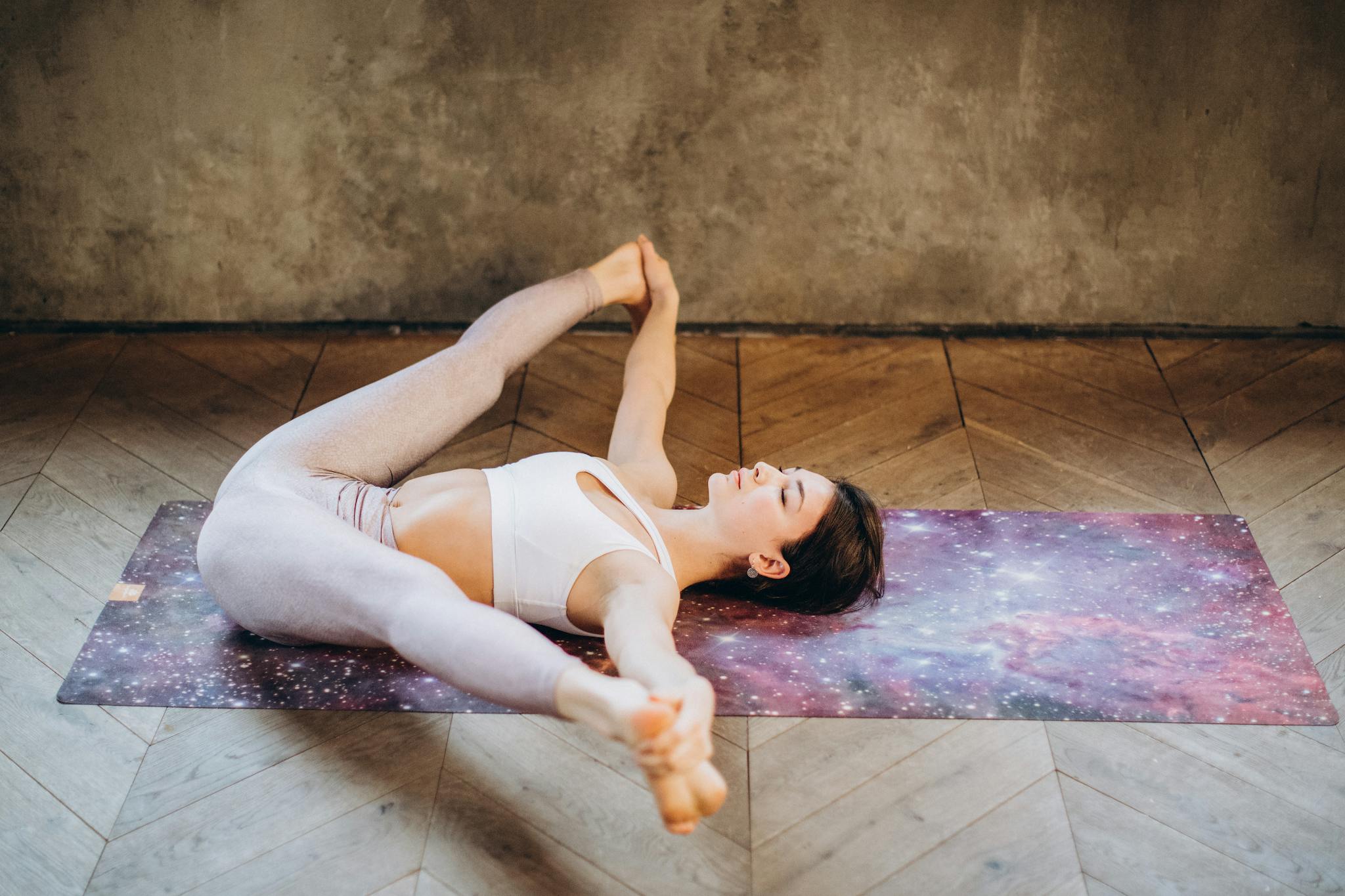In today’s fast-paced world, achieving balance between your mind and body is essential for overall well-being. Mind and body fitness isn’t just about physical strength; it’s about creating harmony within yourself, where mental clarity and physical vitality support each other. In this article, we’ll explore practical ways to balance your mind and body, the benefits of exercise for both, and techniques to enhance your well-being. From understanding the impact of mind-body exercises to learning about a balanced diet and improving physical balance, you’ll gain insights to help you live a healthier, more connected life.
How do you balance your mind and body?
Balancing your mind and body requires a holistic approach that nurtures both physical and mental well-being. Here are some key strategies to achieve harmony:
1. Practice Mindfulness and Meditation
Mindfulness helps you stay present and reduces stress, while meditation enhances focus and emotional balance. Even a few minutes a day can improve mental clarity and relaxation.
2. Engage in Regular Physical Activity
Exercise isn’t just for physical health—it also boosts mood, reduces stress, and improves brain function. Activities like yoga, tai chi, or even walking can help connect your body and mind.
3. Prioritize Rest and Sleep
Quality sleep restores both the body and mind, enhancing cognitive function, emotional resilience, and physical recovery. Aim for 7-9 hours per night.
4. Nourish Your Body with Healthy Foods
A well-balanced diet fuels both physical energy and mental clarity. Focus on whole foods, lean proteins, healthy fats, and essential vitamins and minerals.
5. Manage Stress Effectively
Chronic stress disrupts balance. Practices like deep breathing, journaling, and spending time in nature can help regulate stress levels.
6. Foster Positive Relationships
Surround yourself with supportive people. Social connections contribute to emotional well-being, reducing feelings of loneliness and anxiety.
7. Align with Your Passions and Purpose
Engaging in activities that bring joy and fulfillment creates a sense of purpose, positively affecting both mental and physical health.
By incorporating these habits into your daily routine, you can create a strong foundation for a balanced, healthy life.
What is mind and body fitness?
Mind and body fitness is the practice of integrating physical movement with mental well-being to create a balanced, healthy lifestyle. It goes beyond traditional exercise by emphasizing the connection between physical activity, mental clarity, and emotional resilience.
Rather than just focusing on muscle strength or endurance, mind and body fitness nurtures the whole person. It includes activities that improve physical health while also reducing stress, enhancing focus, and promoting inner peace.
Key Components of Mind and Body Fitness:
- Physical Movement with Mindfulness – Exercises like yoga, Pilates, tai chi, and even mindful walking help develop strength, flexibility, and balance while keeping you mentally engaged.
- Breath Control and Relaxation – Deep breathing, meditation, and relaxation techniques help calm the nervous system and enhance focus.
- Balanced Nutrition – Eating whole, nutrient-rich foods supports both physical energy and mental clarity.
- Quality Sleep and Recovery – Proper rest is essential for muscle recovery, brain function, and emotional stability.
- Emotional Well-being – Managing stress, fostering positive relationships, and practicing gratitude all contribute to overall mind-body health.
By incorporating mind and body fitness into your daily routine, you can achieve greater strength, balance, and resilience—physically and mentally.
What is the benefit of exercise for body and mind?
Exercise is one of the most powerful tools for improving both physical health and mental well-being. It strengthens the body, sharpens the mind, and boosts overall happiness. Here’s how:
1. Physical Benefits of Exercise
- Improves Heart Health – Regular movement strengthens the heart, improves circulation, and reduces the risk of heart disease.
- Enhances Strength and Flexibility – Exercise builds muscle, increases bone density, and improves balance, reducing the risk of injury.
- Boosts Immunity – Physical activity helps the body fight off infections and reduces inflammation.
- Aids in Weight Management – Exercise burns calories and supports a healthy metabolism.
- Improves Sleep Quality – Regular activity promotes deeper, more restorative sleep.
2. Mental and Emotional Benefits of Exercise
- Reduces Stress and Anxiety – Physical activity lowers cortisol (the stress hormone) and increases endorphins, helping you feel calmer and happier.
- Boosts Brain Function – Exercise enhances memory, concentration, and problem-solving skills by increasing blood flow to the brain.
- Supports Mental Health – Activities like yoga and tai chi improve mood, reduce symptoms of depression, and promote emotional resilience.
- Enhances Self-Confidence – Regular movement improves body image and self-esteem.
By making exercise a part of your routine, you create a stronger, healthier body while also fostering a clearer, more positive mindset. It’s one of the best investments you can make for your overall well-being.
How to balance your body?

Balancing your body is about maintaining stability, strength, and coordination in both movement and overall health. It involves improving physical balance, posture, flexibility, and internal harmony. Here’s how you can achieve it:
1. Strengthen Your Core
Your core muscles (abs, lower back, and hips) are essential for stability. Exercises like planks, bridges, and Pilates help improve balance and posture.
2. Practice Balance Exercises
Activities like standing on one leg, heel-to-toe walking, or using a balance board can enhance coordination and stability.
3. Engage in Mind-Body Workouts
Yoga and tai chi improve body awareness, flexibility, and balance by combining slow, controlled movements with mindfulness.
4. Maintain Good Posture
Poor posture can throw off your balance. Keep your spine aligned, shoulders relaxed, and weight evenly distributed when standing or sitting.
5. Improve Flexibility and Mobility
Stretching and mobility exercises help prevent stiffness and improve joint function, making movement more fluid and controlled.
6. Eat a Nutrient-Rich Diet
A well-balanced diet with adequate protein, vitamins, and minerals supports muscle function, joint health, and energy levels.
7. Stay Hydrated
Dehydration can lead to dizziness and muscle fatigue, affecting balance. Drink enough water throughout the day.
8. Get Quality Sleep
Lack of sleep can impact coordination, reaction time, and overall body control. Aim for 7-9 hours of quality rest each night.
By incorporating these habits, you’ll strengthen your body’s stability, prevent injuries, and move with greater confidence in daily life.
Mind and Body Techniques for Better Health and Well-Being

Mind and body techniques are practices that enhance both mental and physical well-being by fostering a strong connection between the two. These techniques promote relaxation, balance, and resilience while improving overall health. Here are some of the most effective ones:
1. Meditation and Mindfulness
- Helps reduce stress, improve focus, and increase emotional resilience.
- Techniques include guided meditation, breath awareness, and body scanning.
2. Yoga
- Combines physical postures, breath control, and meditation.
- Enhances flexibility, strength, balance, and mental clarity.
3. Tai Chi and Qigong
- Gentle, flowing movements improve coordination, balance, and energy flow.
- Helps reduce stress and promotes relaxation.
4. Deep Breathing Exercises
- Techniques like diaphragmatic breathing and box breathing calm the nervous system.
- Reduces anxiety, improves oxygen flow, and enhances mental focus.
5. Progressive Muscle Relaxation (PMR)
- Involves tensing and relaxing muscle groups to release tension.
- Helps improve body awareness and relaxation.
6. Visualization and Guided Imagery
- Using mental imagery to create a sense of calm and focus.
- Can help reduce stress, enhance performance, and promote healing.
7. Journaling and Expressive Writing
- Writing down thoughts and feelings can help process emotions and reduce stress.
- Supports self-reflection and mental clarity.
8. Sound Therapy and Music Relaxation
- Listening to calming music, chanting, or sound healing (like Tibetan singing bowls) can relax the mind and body.
9. Massage and Bodywork
- Techniques like deep tissue massage, acupressure, and reflexology relieve tension and improve circulation.
10. Cold Therapy and Heat Therapy
- Cold showers, ice baths, or heat packs can help improve circulation, reduce inflammation, and enhance recovery.
By incorporating these mind-body techniques into your routine, you can achieve greater physical and mental balance, reduce stress, and improve overall well-being.
Why is fitness important?
Fitness is essential for a healthy and fulfilling life, impacting not just physical strength but also mental well-being and overall quality of life. Here’s why staying fit matters:
1. Enhances Physical Health
- Strengthens the heart and improves circulation, reducing the risk of heart disease.
- Helps maintain a healthy weight, preventing obesity-related conditions like diabetes.
- Improves lung capacity and oxygen flow, boosting endurance and energy.
- Strengthens bones and muscles, reducing the risk of osteoporosis and injuries.
2. Supports Mental and Emotional Well-Being
- Reduces stress by lowering cortisol levels and increasing endorphins (the “feel-good” hormones).
- Improves mood and helps prevent anxiety and depression.
- Enhances cognitive function, memory, and focus.
- Promotes better sleep, helping the body and mind recover properly.
3. Boosts Energy and Productivity
- Regular exercise improves stamina and reduces fatigue.
- Increases blood flow to the brain, improving concentration and problem-solving skills.
4. Improves Longevity and Quality of Life
- Staying active helps prevent chronic diseases and slows down aging.
- Maintains mobility, flexibility, and balance, keeping you independent as you age.
5. Strengthens Immune System
- Regular movement helps the body fight off infections and reduces inflammation.
6. Builds Confidence and Self-Esteem
- Achieving fitness goals boosts self-discipline and self-worth.
- Improves body image and overall happiness.
Fitness is not just about looking good—it’s about feeling strong, energized, and mentally sharp. By making exercise and healthy habits a priority, you set yourself up for a longer, healthier, and more vibrant life.
Effects of Mind-Body Exercise
Mind-body exercises, like yoga, tai chi, and Pilates, focus on the connection between physical movement and mental awareness. These practices offer numerous benefits that improve both physical health and mental well-being.
1. Reduces Stress and Anxiety
- Exercises that incorporate mindfulness, deep breathing, and slow movements lower cortisol levels and promote relaxation.
- Helps calm the nervous system and improve emotional resilience.
2. Enhances Physical Strength and Flexibility
- Improves muscle tone, posture, and joint mobility.
- Increases balance and coordination, reducing the risk of falls and injuries.
3. Boosts Mental Clarity and Focus
- Enhances cognitive function by promoting better oxygen flow to the brain.
- Improves concentration, memory, and decision-making skills.
4. Promotes Emotional Well-Being
- Encourages self-awareness and mindfulness, leading to a more positive outlook.
- Helps regulate emotions, reducing symptoms of depression and anxiety.
5. Supports Better Sleep
- Mind-body workouts, like yoga and meditation, promote relaxation and help regulate sleep cycles.
- Reduces insomnia and improves overall sleep quality.
6. Strengthens the Immune System
- Reduces inflammation and boosts the body’s ability to fight off illness.
- Lowers stress-related immune suppression.
7. Enhances Heart and Lung Health
- Improves circulation, lowers blood pressure, and enhances lung capacity.
- Reduces the risk of heart disease and other chronic conditions.
20 Min Full Body Workout Routine for Beginners
8. Encourages Mindful Eating and Healthy Habits
- Increases awareness of how the body feels, leading to better food choices and eating habits.
- Reduces emotional eating and promotes balanced nutrition.
By incorporating mind-body exercises into your routine, you can experience a more balanced, resilient, and energized lifestyle. These practices help you move better, think clearer, and feel more connected to yourself.
How to Improve Your Balance
Good balance is essential for stability, coordination, and injury prevention. Whether you’re an athlete, an older adult, or just looking to move more confidently, here are key ways to enhance your balance:
1. Strengthen Your Core
Your core muscles (abs, lower back, and hips) provide stability. Strengthening them improves posture and balance.
Exercises:
- Planks (front and side)
- Bridges
- Russian twists
2. Practice Balance Exercises
Training your body to stay steady enhances coordination and stability.
Exercises:
- Single-leg stand: Stand on one leg for 30 seconds, then switch.
- Heel-to-toe walk: Walk in a straight line, placing one foot directly in front of the other.
- Balance board or Bosu ball exercises: Challenge your stability with controlled movements.
3. Engage in Mind-Body Workouts
Yoga, tai chi, and Pilates improve body awareness, flexibility, and balance.
4. Strengthen Your Lower Body
Strong legs provide a solid foundation for balance.
Exercises:
- Squats
- Lunges
- Calf raises
5. Improve Flexibility and Mobility
Tight muscles can throw off balance. Stretch regularly to maintain fluid movement.
Focus on:
- Hip flexors
- Hamstrings
- Ankles
6. Train Your Proprioception
Proprioception is your body’s ability to sense movement and position.
Ways to improve:
- Close your eyes while balancing to enhance body awareness.
- Walk barefoot to strengthen foot muscles.
7. Use Proper Posture
Slouching affects balance. Keep your head up, shoulders back, and spine aligned when standing or moving.
8. Strengthen Your Feet and Ankles
Weak ankles lead to instability.
Exercises:
- Toe lifts
- Ankle circles
- Towel scrunches (grabbing a towel with your toes)
9. Stay Active and Keep Moving
Regular movement keeps muscles engaged and prevents stiffness, improving overall balance.
10. Get Enough Rest and Hydration
Fatigue and dehydration can lead to dizziness and instability. Stay hydrated and prioritize sleep for better balance control.
By consistently practicing these techniques, you’ll build strength, stability, and confidence in your movements.
What food has all 13 vitamins?

There is no single food that contains all 13 essential vitamins in significant amounts, but a balanced, nutrient-rich diet can help you get all the vitamins your body needs. These 13 vitamins include A, C, D, E, K, and the B-vitamins (B1, B2, B3, B5, B6, B7, B9, and B12).
However, some foods come close to offering a wide range of vitamins:
1. Liver (especially beef liver)
- Rich in vitamins A, B12, B2, B6, and folate.
- Contains many other vitamins like B5, B9, and B3.
2. Eggs
- Good source of vitamins A, D, B2, B5, B7, and B12.
- Also contains vitamin E and small amounts of others.
3. Salmon
- High in vitamin D, B12, and B3.
- Contains vitamins A, B2, B6, and B5.
4. Dairy Products (Milk, Cheese, Yogurt)
- High in vitamins A, D, B2 (riboflavin), B12, and B5.
- Contains smaller amounts of B1 and B6.
5. Leafy Greens (Spinach, Kale, Swiss Chard)
- Rich in vitamins A, K, B9 (folate), and C.
- Provides some B6 and small amounts of others.
6. Fortified Foods (Cereal, Plant Milks, Orange Juice)
- Fortified with vitamins D, B12, and sometimes A, B9, and B2.
7. Sweet Potatoes
- High in vitamin A (beta-carotene), and also provides vitamin C, B6, and small amounts of B1 and B2.
8. Citrus Fruits (Oranges, Lemons, Grapefruits)
- Excellent source of vitamin C and some B-vitamins (B1, B9).
While no single food has all 13 vitamins in the amounts needed for optimal health, consuming a variety of nutrient-dense foods, including those mentioned above, will ensure you get all the essential vitamins. A well-rounded diet that includes fruits, vegetables, protein sources, and dairy or fortified alternatives is the key to meeting your nutritional needs.
